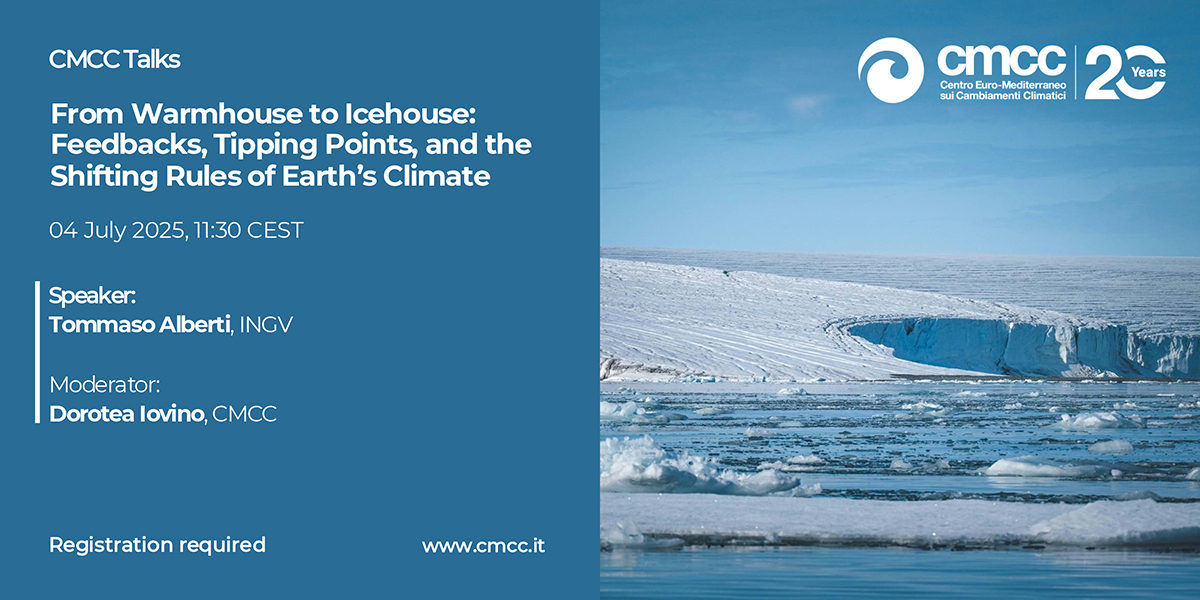CMCC Talks
04 July 2025, 11:30 CEST
To join the webinar, register here

Speaker: Tommaso Alberti, INGV
Moderator: Dorotea Iovino, CMCC
The current Icehouse climate state, characterized by the presence of large polar ice sheets, behaves fundamentally differently from the warmer climate regimes of the past 66 million years. Our analysis shows that during the Icehouse, climate variability has been shaped by a larger number of interacting feedbacks acting across multiple timescales, particularly those linked to obliquity (41,000 years) and eccentricity (100,000 years), but also on shorter ones (millennial scales). These feedbacks, especially involving ice sheet dynamics, ocean-atmosphere coupling, and carbon cycle processes, enhance the mutual reinforcement between temperature changes and greenhouse gas concentrations. This increased coupling raises the likelihood of crossing climatic tipping points, thresholds beyond which abrupt and potentially irreversible changes may occur. We identify stronger signs of dynamical instability during the Icehouse state, reflected in unusually high feedback activity and reduced resilience. Unlike warmer past states, where fewer dominant mechanisms operated, the Icehouse appears governed by a complex web of interconnected processes, some of which may amplify external and internal forcings disproportionately. These findings highlight that climate models aiming to project future trajectories cannot rely on a single conceptual framework derived from past warm climates. Instead, models must explicitly incorporate the dynamic and state-dependent nature of feedbacks and instability patterns, particularly in the context of our current Icehouse regime, where long-term stability may be more fragile than previously thought. Including such information is crucial to improve predictions of climate tipping points and to better assess the resilience of the Earth system under ongoing anthropogenic forcing.
WATCH THE VIDEO

